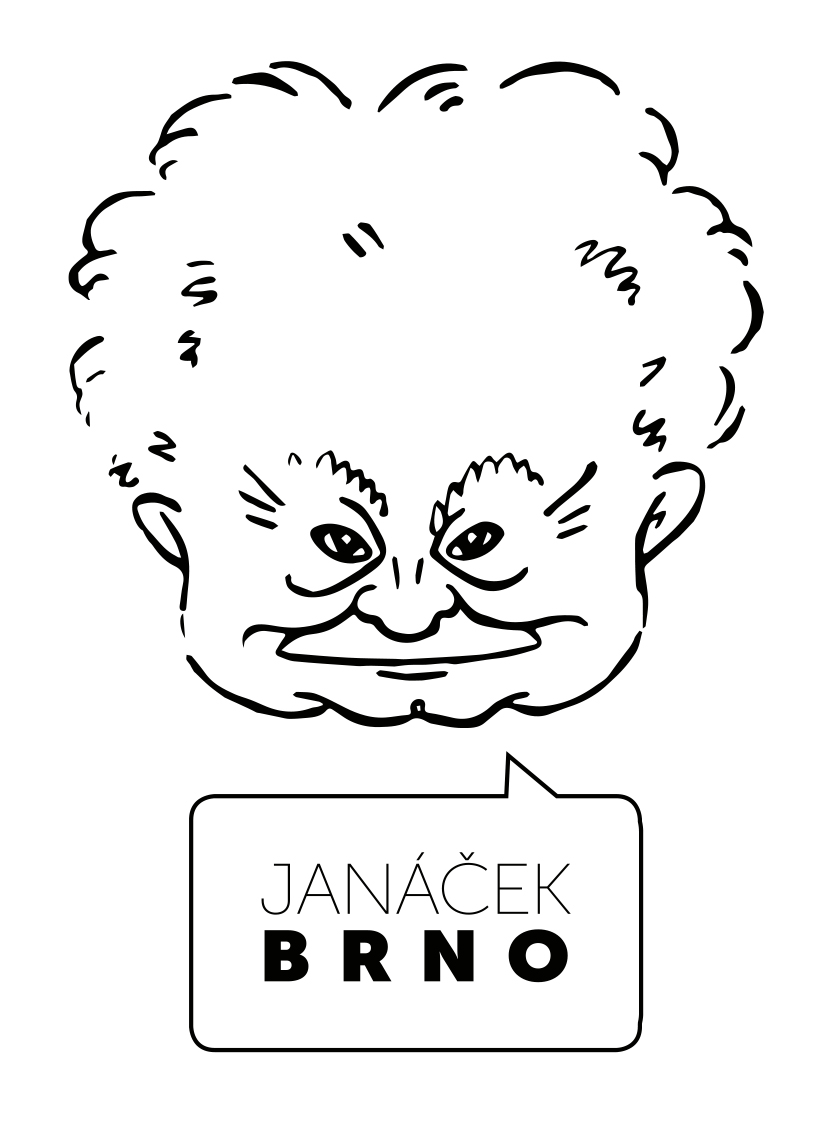
JENŮFA JW I/4
opera in three acts
libretto by Leoš Janáček after the play "Její pastorkyňa" by Gabriela Preissová
1894-1903, rev. 1907, 1908, 1915
premiere 21. 1. 1904 Brno
first edition Club of the Friends of Art, Brno 1908 (piano-vocal score), Universal Edition, Vienna 1918 (full score), 1969 (full score, ed. Joannes Martin Dürr), 1996 (full score, piano-vocal score, ed. Charles Mackerras, John Tyrrell, Brno version 1908 - critical edition)
The opera that brought Janáček international fame. He was one of the first composers to write an opera based on a non-verse (prose) text, setting Gabriela Preissová's realistic play to music. The story is set in a Moravian village at the end of the 19th century and tells the cruel story of Jenůfa, a young woman who becomes pregnant by the frivolous Števa, and her foster mother, the Kostelnička. Under the pressure of social convention, the Kostelnička desperately tries to save her stepdaughter's honor — even at the cost of committing murder. For Janáček, the Prague premiere of the opera in 1916 marked the beginning of recognition both at home and abroad.
The basis for the libretto to Jenůfa was once again a work by the Moravian writer Gabriela Preissová. This time it was the play 'Její pastorkyňa' (Her Stepdaughter), which had been performed in Prague in 1890 and Brno in 1892 and had aroused much debate. Although Preissová had convinced Janáček that her play was not at all suitable as a subject for opera, Janáček was not intending to compose an opera with a versified libretto. He had been led to this view by, among other things, his research into the expression and melody of human speech, the sounds of which he noted down as "speech melodies". He himself adapted Preissová's play, reducing its overall length. Janáček worked on Jenůfa for nearly nine years. He finished the first act in 1897, the second in 1902, and the last was written at a time of tragedy for the Janáček family. In 1902, their daughter Olga went to visit Janáček's brother in Petrograd in order to perfect her Russian before her state exam. However, she caught influenza and her already poor state of health became hopeless. Janáček finished his opera in February 1903 just as Olga was dying. He dedicated Jenůfa to the memory of his daughter. He wanted to entrust the Prague National Theatre with the premiere of the opera, but the management rejected it saying that the opera was unsuitable for performing. The world premiere took place in Brno on 21 January 1904 and was enormously successful. Janáček, however, continued to try to get the work performed in Prague as the basic conditions in the Brno theatre were unsatisfactory for performing this innovative work. Nevertheless, Prague National Theatre continued to resist until 1915 when, thanks to the diplomatic efforts of Janáček's friends, the head of the theatre and conductor Karel Kovařovic was persuaded to take on Jenůfa as a favour. For the Prague premiere Kovařovic introduced certain changes in the instrumentation and he himself was in charge of the rehearsals. After the great success of the Prague premiere on 26 May 1916, Janáček was finally regarded as a composer both on a Czech and an international level. The Prague writer and journalist, Max Brod, became interested in the opera and brought it to the attention of the Viennese publishers Universal Edition. He also translated the libretto into German and soon the Viennese Court Opera also showed interest in the opera. It was not long before there were other international productions of Jenůfa. During Janáček's lifetime the opera was performed in places such as Zagreb (1920), Berlin (1924), at the Metropolitan Opera in New York (1924), in Basel (1925) and in Antwerp, and since then it has appeared regularly in opera houses across the world.
Opera synopsis
Act 1
The attractive Jenůfa is pregnant and is worried that her boyfriend Števa will be called up to the army - thus preventing any wedding. Fortunately, Števa is not called up and gets happily drunk. Jenůfa's strict foster mother, the Kostelnička, lays down a condition that Števa has to stop drinking for a year before he can marry her daughter. Števa's half-brother, Laca, is also in love with Jenůfa and convinces her that Števa only loves her for her beauty. In the quarrel he slashes her cheek with a knife.
Act 2
The Kostelnička, who is worried about the dishonour, hides Jenůfa at home and says to the others that she has gone to Vienna. In the meantime, Jenůfa gives birth to a son. While Jenůfa is sleeping, the Kostelnička humiliates herself in front of Števa and begs him to marry Jenůfa. However, Števa now finds Jenůfa ugly with her scar and is engaged to someone else. Laca pleads with the Kostelnička to allow him to marry her, but then panics when the Kostelnička tells him about the child. Seeing his doubts, the Kostelnička quickly invents a story that the child died immediately after birth. As soon as Laca leaves, the Kostelnička drowns the child in the icy river and then convinces Jenůfa that she had slept for several days in a fever, during which her boy died. The exhausted Jenůfa consents to marrying Laca.
Act 3
During the preparations for the wedding, news spreads that a dead baby has been found in the river under the ice. Jenůfa recognizes the child and is suspected of murder. The Kostelnička confesses in front of everyone. Before she is taken away, Jenůfa forgives her because she understands that she did everything from love for her. Jenůfa does not believe that Laca will still want her and sends him away. However, Laca promises that he will stand by her even during the worst times and Jenůfa realizes that she has found her true love in him.
